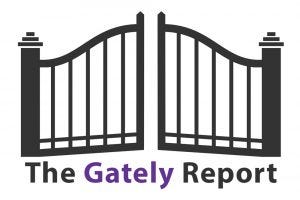British daily newspaper The Guardian has confirmed it was hit by a ransomware attack last month.

LogRhythm’s channel leader says his company’s “maniacal” focus on customer success is great for partners and helping them grow.
 Gary Abad is LogRhythm’s vice president of global channels. He originally joined LogRhythm in 2015 as senior director of channel sales. He then returned last August after channel leadership roles with Ivanti and Trustwave.
Gary Abad is LogRhythm’s vice president of global channels. He originally joined LogRhythm in 2015 as senior director of channel sales. He then returned last August after channel leadership roles with Ivanti and Trustwave.
Earlier this month, LogRhythm announced a series of expanded capabilities and integrations for its security operations solutions. Following the October launch of Axon, a cloud-native security operations platform, LogRhythm introduced new visualizations and analytics that offer increased visibility into potential security risks.
LogRhythm ‘Reestablishing’ Itself with Partners
Abad said LogRhythm has been focused on “reestablishing ourselves with partners.”
“We’re super excited about our new management team, our new CEO and the direction we’re taking the company,” he said. “And what we always try to get through is our focus on the customer will be our differentiator. There’s a lot of good technology out there and there’s some great technology. And we certainly feel we have great technology. What will absolutely make us stand apart is our maniacal focus on customer success, which is great for our partners.”
LogRhythm is looking at its programs and partnerships to “make sure we build that program that promotes those types of business outcomes for our clients,” Abad said.

LogRhythm’s Gary Abad
“We’re making sure our partners are enabled,” he said. “We’re making sure that the integration back into what they’re doing for the clients works well. There are the MSP partners out there, the co-managed services partners, and it’s really important that the technology that they have inside their four walls, my technology, works well, not just for the client, but for them. So we’re working on it right now to make sure that we’re going to deliver that type of program that produces those types of results.”
Scroll through our slideshow above for a Q&A with Abad and more of the week’s cybersecurity news.
Want to contact the author directly about this story? Have ideas for a follow-up article? Email Edward Gately or connect with him on LinkedIn. |
About the Author(s)
You May Also Like


